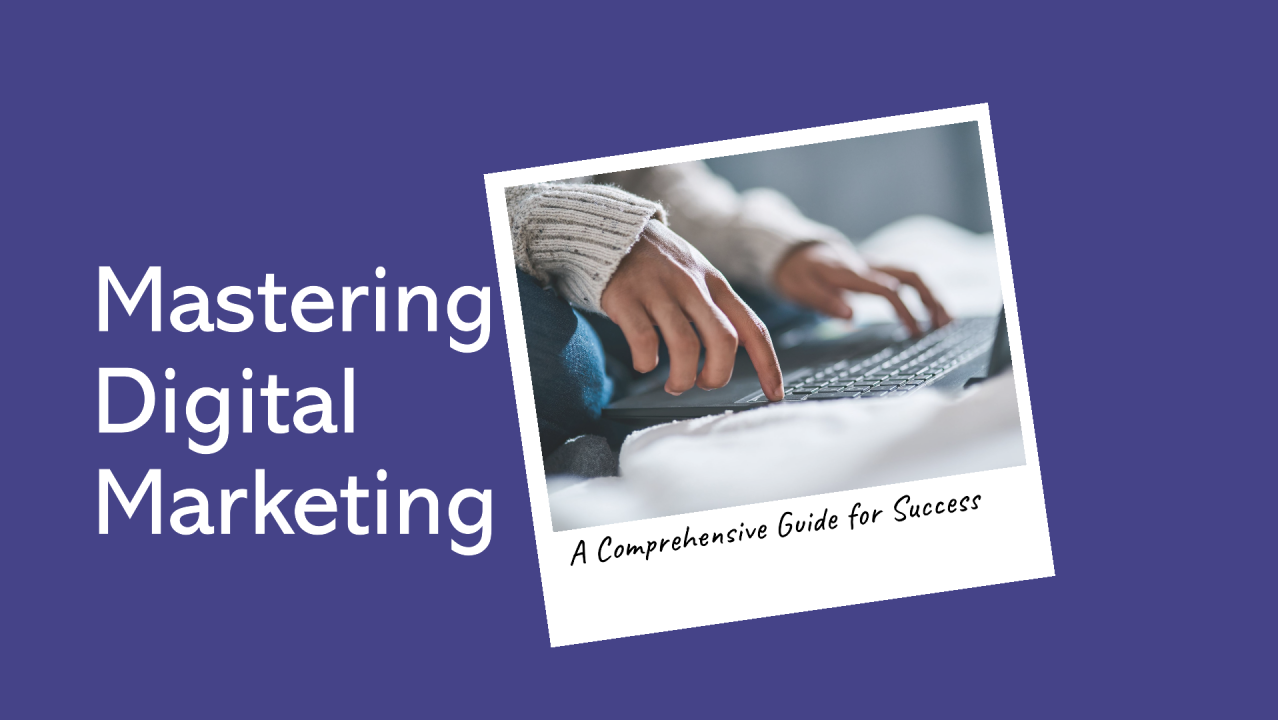In the digital age, marketing has undergone a profound transformation. The shift from traditional methods to digital channels has opened up unprecedented opportunities for businesses to connect with their audience. For modern entrepreneurs, mastering digital marketing is not just an option but a necessity for survival and success. This guide provides actionable insights and strategies to help entrepreneurs navigate the complex world of digital marketing effectively.
What is Digital Marketing?
Digital marketing refers to the use of online platforms, digital technologies, and internet-based channels to promote products or services. Unlike traditional marketing methods, digital marketing offers real-time engagement, measurable results, and the ability to target specific audiences. It encompasses various techniques, including search engine optimization (SEO), social media marketing, email marketing, content marketing, and paid advertising.
Why is Digital Marketing Essential for Entrepreneurs?
Modern entrepreneurs face stiff competition in almost every industry. Here are key reasons why digital marketing is critical for success:
- Wider Reach: Digital marketing enables businesses to reach a global audience, breaking geographical barriers.
- Cost-Effective: Compared to traditional marketing, digital campaigns are more affordable and offer better ROI.
- Measurable Results: Tools like Google Analytics provide data on campaign performance, helping refine strategies.
- Targeted Advertising: Entrepreneurs can target specific demographics, interests, and behaviors, ensuring their marketing efforts reach the right audience.
- Brand Building: Consistent digital presence enhances brand visibility, trust, and credibility.
Core Components of Digital Marketing
To master digital marketing, entrepreneurs must focus on several key components. Each plays a vital role in building a comprehensive marketing strategy.
1. Search Engine Optimization (SEO)
SEO is the process of optimizing a website to rank higher in search engine results pages (SERPs). A strong SEO strategy ensures your business is discoverable when potential customers search for relevant products or services.
Actionable Tips:
- Keyword Research: Use tools like Google Keyword Planner or Ahrefs to identify high-value keywords.
- Optimize Content: Incorporate keywords naturally into titles, meta descriptions, headers, and body content.
- Improve Site Speed: A fast-loading website enhances user experience and improves rankings.
- Backlink Building: Secure high-quality backlinks from reputable websites to boost authority.
2. Content Marketing
Content marketing focuses on creating valuable, relevant, and consistent content to attract and retain a target audience.
Types of Content:
- Blog Posts: Share industry insights, tips, and trends.
- Videos: Tutorials, testimonials, and explainer videos.
- Infographics: Visual data presentations.
- Ebooks/Whitepapers: In-depth resources for lead generation.
Actionable Tips:
- Develop a content calendar to ensure consistency.
- Address customer pain points with actionable solutions.
- Repurpose content across multiple platforms for greater reach.
3. Social Media Marketing
Social media platforms like Facebook, Instagram, LinkedIn, and Twitter are powerful tools for engaging with your audience and promoting your brand.
Actionable Tips:
- Choose the right platform based on your audience demographics.
- Post consistently and at optimal times.
- Use analytics tools to measure engagement and refine your strategy.
- Leverage paid ads for targeted campaigns.
4. Email Marketing
Email marketing is a highly effective channel for nurturing leads and maintaining customer relationships. It allows direct communication with your audience.
Actionable Tips:
- Segment your email lists based on customer preferences and behaviors.
- Personalize email content to increase open and click-through rates.
- Use automation tools for drip campaigns and follow-ups.
- Monitor metrics like open rates, CTR, and conversions to optimize campaigns.
5. Pay-Per-Click Advertising (PPC)
PPC involves paying for ads that appear on search engines, social media, or other digital platforms. It’s a great way to drive traffic and generate leads quickly.
Actionable Tips:
- Set clear campaign goals (e.g., website traffic, lead generation).
- Research keywords to ensure high relevance and low competition.
- Test ad creatives and landing pages to improve performance.
- Monitor your ad spend and ROI regularly.
6. Analytics and Performance Measurement
Analytics tools help track the performance of digital marketing campaigns and identify areas for improvement.
Actionable Tips:
- Use tools like Google Analytics, SEMrush, and HubSpot.
- Track metrics such as website traffic, conversion rates, and customer acquisition costs.
- Set KPIs (Key Performance Indicators) to measure success.
- Continuously refine strategies based on data insights.
Building a Digital Marketing Strategy
A successful digital marketing strategy aligns with your business goals and target audience. Here’s a step-by-step guide:
Step 1: Define Your Goals
- Identify what you want to achieve (e.g., brand awareness, lead generation, sales).
- Set SMART goals (Specific, Measurable, Achievable, Relevant, Time-bound).
Step 2: Understand Your Audience
- Create buyer personas based on demographics, interests, and pain points.
- Use audience insights from social media and website analytics.
Step 3: Choose Your Channels
- Select digital marketing channels that align with your audience’s preferences.
- Focus on a mix of organic and paid methods.
Step 4: Develop a Content Plan
- Outline content types, topics, and publishing schedules.
- Ensure consistency in brand messaging across all platforms.
Step 5: Monitor and Optimize
- Regularly analyze campaign performance.
- Make data-driven adjustments to improve ROI.
Common Challenges and How to Overcome Them
- Limited Budget: Start small and focus on high-impact, low-cost strategies like SEO and social media.
- Keeping Up with Trends: Stay updated by following industry blogs, attending webinars, and networking with peers.
- Lack of Expertise: Consider outsourcing to digital marketing agencies or investing in training.
- Content Overload: Prioritize quality over quantity and focus on audience relevance.
Conclusion
Mastering digital marketing is a journey that requires continuous learning, adaptation, and experimentation. For modern entrepreneurs, it’s an invaluable tool to reach audiences, build brand loyalty, and achieve business goals. By leveraging the strategies outlined in this guide, entrepreneurs can harness the power of digital marketing to stay competitive and thrive in today’s digital-first world.

